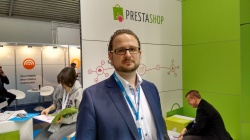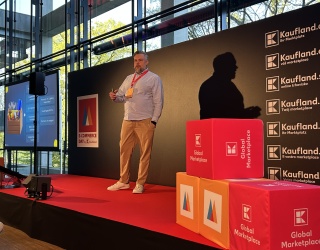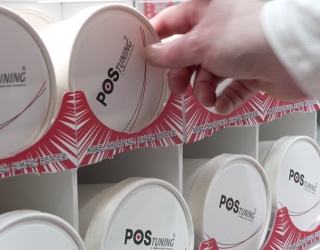
Mr. Meischner, what are the concrete advantages of an open source online store solution for retailers?
The principles of open source are often being reduced to the free availability aspect though this is far and away not the only advantage this type of solution offers retailers. Since the software is freely available, an open source solution can quickly spread all over the world because the financial hurdle for entering online retail no longer exists. What’s more, the international user community constantly collaborates in the further development and particularly the localization of the system true to the open source principles.
Currently, approximately 230,000 retailers in 160 countries all over the world use PrestaShop. Of course, each of these countries has its very own requirements as it pertains to the regulatory frameworks, payment methods etc. Since the community – overall there are more than 700,000 members – in the individual countries assists in adapting the solution to the special challenges of the respective market, a country-specific software version becomes available after a very short amount of time. Therefore, it would be incorrect to reduce the principles of open source to its ”free mentality“. In fact, the enormously large community provides an immense potential for the advancement of the shop system.
What features make this type of system particularly attractive to retailers?
An open source shop system is also suited for retailers that are active in various markets. It is multilingual and supports multiple currencies while there is a simultaneous connection to a variety of regional vendors. Small specialty retail stores today also need a shop solution with which they can sell items globally since the biggest demand for their products is not necessarily on the local market. What’s more, the system is naturally responsive; the stores can, therefore, be accessed via mobile devices and desktop computers with the appropriately adapted interface. All of these features are implemented in a particularly fast and precise fashion thanks to the collaboration of the community – after all, all retailers are interested in finding the ideal solution for them and their target market.

You need to know that Germany’s eCommerce industry, in particular, is strongly influenced by the ecosystem. Even though the shop system itself is the central system that sells to the end customer, there is, however, a large number of systems that run in the background. Of course, they also need to collaborate effectively for the store to be operated successfully. This includes payment service providers, logisticians, agencies, ERP and online marketing systems. This is why it is important for us to maintain a comprehensive network of agencies and partners. In doing so, we ensure that PrestaShop is able to collaborate with all background systems. We cooperate both with local as well as globally active service providers because all retailers naturally want to have software adapted to their market. At the same time, retailers also need to support global payment solutions such as PayPal, for example.
Just now, we have obtained two new partners. The first one is the online agency BuI Hinsche that also originates from the open source field. It develops modules for various shop systems. Together with this agency, we are able to significantly increase the range of third party modules for PrestaShop. Bul Hinsche is currently developing an interface for the multichannel platform Afterbuy and a migration tool for various shop systems to PrestaShop. Another new partner is ERP specialist Actindo with whom we closely collaborate. Thanks to this partnership, PrestaShop users can utilize a cloud-based ERP system via a free interface. The goal of all of our partnerships is to design our system in a future-proof way. This is why we attach great importance to our users being able to put current omnichannel applications into practice.
Keyword omnichannel: how does PrestaShop support the connection between eCommerce and brick-and-mortar retail?
Needless to say, this is currently one of the most important topics in the industry. Especially small brick-and-mortar retailers are currently becoming aware that they, too, can profit from an online store. To that extent, it is important for us to create the appropriate interfaces to the existing ecosystems in POS systems or inventory management systems geared towards brick-and-mortar retail.
There are certainly some promising approaches that we can also integrate into our solution. One example would be web-based POS systems that are available for both brick-and-mortar retail and the online store – as a complete system so to speak. It certainly offers immense advantages for small retailers if a solution like PrestaShop renders this possible. The topic is becoming increasingly important, which is also why the further development of our product is on top of our agenda. In addition, we will also collaborate with POS manufacturers in the future to implement the appropriate solutions.
Interview by Daniel Stöter, iXtenso.com




